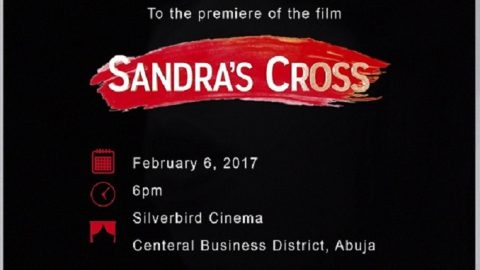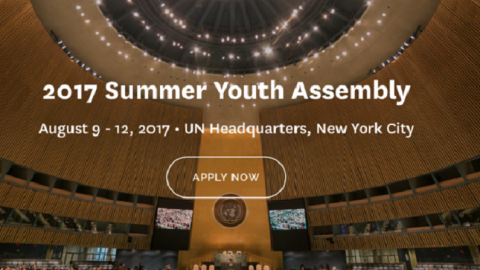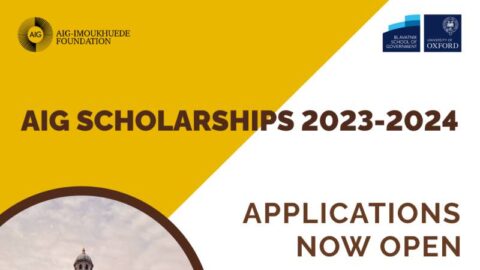It was 10am on the morning of September 15th 2010 when President Goodluck Jonathan released a Facebook note that was later to go viral. The note was a declaration of intent for the 2011 presidential election race. On the same date, an arch rival within the party, General Babaginda Badamosi Babangida had set aside 12 noon to declare his intention for the presidency at the Eagle Square. By the next morning, it was apparent that Jonathan’s Facebook declaration was as effective as Babaginda’s physical event in Abuja as they both shared the headlines putting an end to pretensions that President Goodluck wasn’t interested in running for the presidency. The president’s new media approach to declaration was the first of its kind. Fast forward to March 31st 2015, and the president’s rare but effective approach came to play again. This time, the vote counts was already showing that the election was going to be won by the president’s arch rival, General Mohammadu Buhari Rtd. Mr. President again in another first of its kind decided to use a quick method to reach out to his opponent and concede defeat while passing across a congratulatory message. He called General Buhari on phone putting an end to the fierce competition that the election was and possibly also preventing violence that may have originated from an election that had suffered many harsh predictions from various sources. That phone call, which mischievously has now been leaked to the public, will forever remain a reference point.
The 2015 presidential election in Nigeria maybe over, the analysis of what transpired and led to the first victory of the opposition at the federal level in our recent history is yet to end. For years to come, politicians and academics especially those in the social sciences will continue to churn out papers and dissertations on the undercurrents of the election that saw an end to the 16 years uninterrupted reign of the ruling People Democratic Party. There was something largely different about the March 28 Presidential and National Assembly. The following was huge especially among a large number of young people who hitherto had always been apathetic about governance related exercises like elections. News channels and online platforms recognised that there was a level to which their patronage of news could get and so they largely relied on input in form of updates especially before the collation of results in Abuja by the Independent National Electoral Commission started. Punch Newspaper changed a place holder on its site and provided instant updates on the polls for the period while it lasted while its twitter handle @mobilepunch also continued to supplement details of the live update. Channels Television asked Nigerians to send in pictures showing them watching updates cum analysis of the election and also that of them celebrating when eventually the All Progressive Congress presidential candidate won.
While the election count was in progress, there was literally no one in Nigeria who was in the dark as to how things were turning out. Phone calls, tweets, Facebook updates, emails, instant messages and other forms of new media engagements were happening. The print media and the broadcast media were also not left of this information dissemination and analysis as Nigerians from different continents connected to what has turned out to be the most engaging piece of news for the country. Nigerians with spread sheet skills kept summing up the numbers on Microsoft Excel to see how the leading candidates were performing and what the possible predictions were. It was citizen journalism at its peak. There were several instances where even analysts on television and radio were totally dependent on new media sources for their information and insights. The election in part got this huge attention, especially from the generation that was voting for the first time, because information was available in a language they understood and also had space through which they could share their experiences.
What was missing though was the inability of several other apolitical blogs and online channels to connect the dots and share in the political excitement. For instance, one would have expected a fashion blogger to focus on the outfits politicians were wearing to campaign rallies and do an analysis on the appropriateness of such and perhaps even begin a score sheet for the two leading opposition candidates to see who wore it best in a particular state. Young people whose genre is motivational writing and speaking may also have looked at the delivery of speeches and manifestoes at the campaign ground to see who was doing well using those indices. Photography blogs could also have stayed in touch with politics by analysing the quality of pictures and the skills of the photographers that were available form traditional media houses and citizen journalists after the picture must have been published and also sharing tips on how to take better shots in open and chaotic environments. Blogs focused on writing may also have loved to share on the quality of the speeches written and review the content or even suggest better insertions in the speech. Entertainment bloggers will also have kept the space alive if only they reviewed the musical performances in rally grounds and possibly even profiled new artistes who were lucky to be featured or do regular reviews of political TV adverts on YouTube, television and radio. Even bloggers who keep their discussion around food will have been able to talk about diets and drinks that such a rigorous campaign like the one the 14 presidential aspirants engaged in would need.
Data journalism using various tools also reveals more information than we presently know. The acceptance speech of President Goodluck on 18th of April, 2011 after he was declared winner of the 2011 election had ? elections, nation and Nigerians as the three most prominent words in a word cloud of the speech. That of Muhammadu Buhari which was delivered on April 1st, 2015 shows that ? government, nation and Nigeria as the most visible in a word cloud. Time will tell if word clouds can help us access future expectations from a leader. As we move into the period of the gubernatorial and state assembly elections, one hopes that the message of #VoteNotFight will still prevail. Nevertheless, it is in order to congratulate Nigerians for successful elections thus far.
@SolaFagro on twitter
———————————————————————————————————————————————————-
 ‘Sola Fagorusi is a social entrepreneur and a prized freelance writer with a bias for youth and rural development. He started off as a youth staff with Action Health Incorporated in 2001. The Obafemi Awolowo University, Ile-Ife alumnus currently manages the programmes of OneLife Initiative, Nigeria. ‘Sola is a DESPLAY Africa (Africa’s foremost and most consistent annual youth democracy academy) fellow and has been on its faculty since 2011. Keenly interested in governance and pan-Africanism, he volunteers as online editor of YouthHub Africa; a cyber-community for young Africans involved in social change. He believes in the efficacy of oratory and writing as tools to drive developmental engagements. As a freelance writer, he spares time to pen thoughts on contemporary societal issues and is a weekly columnist with Nigeria’s most read daily ? Punch Newspaper. His training and capacity cuts across democracy and governance, leadership, micro-enterprise, ICT4D, SRH, value chains, development communication and policy issues. He tweets @SolaFagro and blogs at www.kadunaboy.com
‘Sola Fagorusi is a social entrepreneur and a prized freelance writer with a bias for youth and rural development. He started off as a youth staff with Action Health Incorporated in 2001. The Obafemi Awolowo University, Ile-Ife alumnus currently manages the programmes of OneLife Initiative, Nigeria. ‘Sola is a DESPLAY Africa (Africa’s foremost and most consistent annual youth democracy academy) fellow and has been on its faculty since 2011. Keenly interested in governance and pan-Africanism, he volunteers as online editor of YouthHub Africa; a cyber-community for young Africans involved in social change. He believes in the efficacy of oratory and writing as tools to drive developmental engagements. As a freelance writer, he spares time to pen thoughts on contemporary societal issues and is a weekly columnist with Nigeria’s most read daily ? Punch Newspaper. His training and capacity cuts across democracy and governance, leadership, micro-enterprise, ICT4D, SRH, value chains, development communication and policy issues. He tweets @SolaFagro and blogs at www.kadunaboy.com







